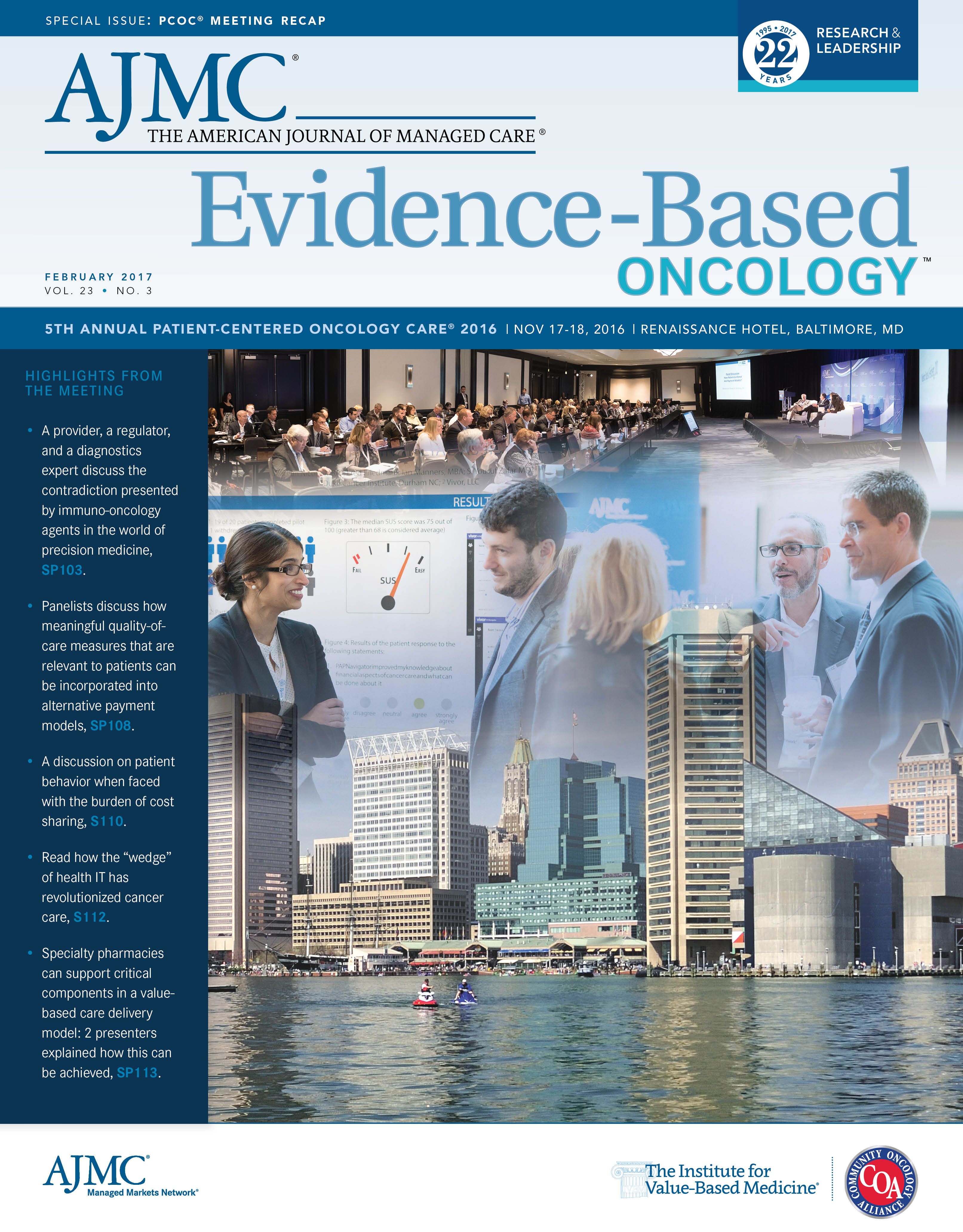- Center on Health Equity & Access
- Clinical
- Health Care Cost
- Health Care Delivery
- Insurance
- Policy
- Technology
- Value-Based Care
The Future of Oncology Care: 2017 and Beyond
Bruce A. Feinberg, DO, moderated a panel at the 5th annual Patient-Centered Oncology Care® meeting that brought stakeholders together to share their cancer care predictions for the upcoming year.
THE 5TH ANNUAL PATIENT-CENTERED ONCOLOGY CARE®
(PCOC®) meeting, hosted by The American Journal of Managed Care®, November 17-18, 2016, in Baltimore, concluded with a panel discussion on oncology care in 2017. Bruce A. Feinberg, DO, moderated the discussion that featured panelists Robert Carlson, MD, chief executive officer of the National Comprehensive Cancer Network (NCCN); Scott Gottlieb, MD, resident fellow at the American Enterprise Institute; Ted Okon, MBA, executive director of Community Oncology Alliance; and Kavita Patel, MD, nonresident fellow at the Brookings Institute.
Feinberg began by asking, “Has value-based care realigned incentives, so that providers look for the minimum acceptable quality of care? The panelists said, “No,” with Patel replying that because quality measures are hard to grasp for cancer care, the evolution to quality and value is not yet complete.
According to Carlson, lack of access is the greater problem because quality care is impossible without access. He said he hopes that the 20 million individuals who have gained coverage under the Affordable Care Act (ACA) will be able to keep their access even if the ACA is repealed. Gottlieb, an ACA critic, said that although the law has increased access, that access is not always sufficient. He predicted that the ACA would be replaced by a number of smaller bills that will target patients who are disadvantaged under the current system. Patel and Okon agreed that if the ACA is dismantled, there will be a need for laws with bipartisan support so that access is not disrupted.
The conversation then shifted to pathways and guidelines for preferred regimens, which could be a way to maintain quality. Carlson said that the NCCN guidelines were more comprehensive than most pathways, which he pointed out focus primarily on drug spending. He described preferred regimens as those “that should be used the vast majority of the time, and they would typically be the regimens that you would find on a pathway system.”
Feinberg mentioned the problem of low health literacy in the United States, asking the panelists how patient-centered oncology could let patients make their own decisions when they may not even understand the implications of these choices. Patel said that many of her patients still don’t understand the basics of insurance and can be blindsided by surprise out-of-network bills, which she called “really unconscionable.”
Gottlieb, meanwhile, argued that although there will always be some patients who are confused, the average patient deserves more credit. “We shouldn’t try to regulate toward the consumer who’s going to be confused in the market. I think we need to regulate toward a more average consumer who’s capable, with the right tools and the right education, of making these kinds of decisions,” he said.
Feinberg asked the panel if value-based care is here for good, despite all the changes likely to occur in the next year. Okon affirmed that “right side of the aisle, left side of the aisle, yes, yes, yes. It’s just a matter of how we implement it and go about it, but I think that everybody wants value.” Gottlieb agreed that payment reforms would continue as a “secular trend.”
The panel wrapped up with a question from an audience member on each expert’s personal definition of value. Okon and Patel both defined the concept of “value” as a combination of quality and cost, but Carlson drew laughs when he replied that value is “whatever the patient tells me it is.”

Quality of Life: The Pending Outcome in Idiopathic Pulmonary Fibrosis
February 6th 2026Because evidence gaps in idiopathic pulmonary fibrosis research hinder demonstration of antifibrotic therapies’ impact on patient quality of life (QOL), integrating validated health-related QOL measures into trials is urgently needed.
Read More

